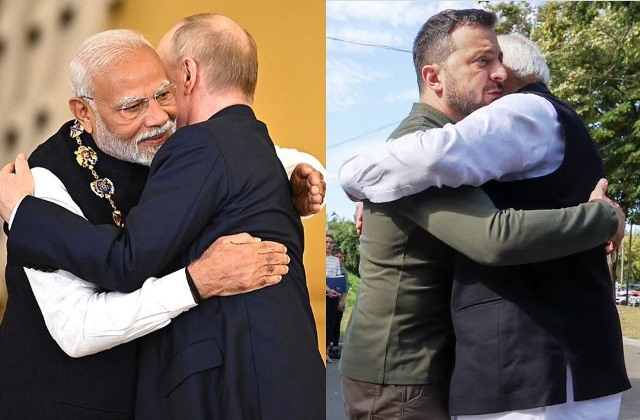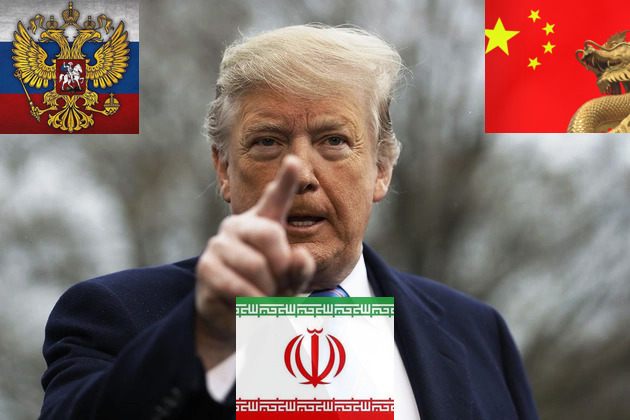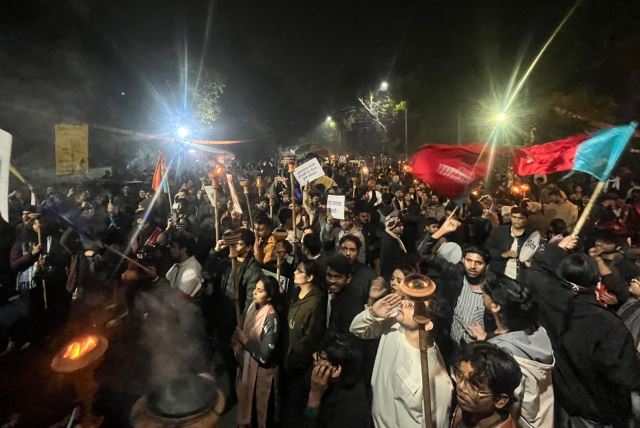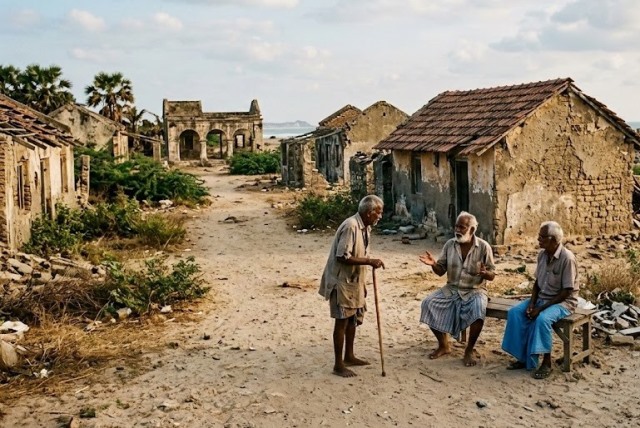
Modi’s Foreign Policy: A Geopolitical Assessment
Three major events mark the international system since the advent of Modi’s Prime Ministership in 2014. The first concerns India directly, where Modi’s outreach to China was severely tested after he had met Xi Jinping, the Chinese president more than a dozen times in six years. In May 2020, the People’s Liberation Army troops intruded into Indian territory violating the Line of Actual Control (LAC) and denied patrolling rights to the Indian Army. The incursion resulted in a violent clash leading to casualties on both sides.
The event is a watershed in relations with China as there were both domestic and international ramifications for Modi government. Relationship between the two Asian giants remain severely strained since the Galwan Valley incident. In the aftermath of the incident, India and China mobilized armed forces and weaponry to the LAC in unprecedented numbers and at many points still hold forward positions. Several rounds of diplomatic and military negotiations have been futile.
Due to the volatile situation at LAC and the fact that People’s Republic of China is the largest trading partner for India, its foreign policy approach towards PRC remains a tightrope walk. China has a trade surplus of $ 85 Billion over India. As a consequence, Beijing emphasizes that negotiations on the situation at the LAC should have no impact on trade and New Delhi argues otherwise. India’s stand has been that forces from both the Indian Army and the PLA should observe status quo as it existed before May 2020. The Modi government in general has been vocal and assertive towards China and banned popular Chinese social media platforms but the realities of the trade imbalance remain.
The second event is the Russian invasion of Ukraine in February 2022 which has geopolitical effects on India’s Foreign Policy and the economy. India’s traditional ally in the international system during the Cold War and later, Russia is the aggressor in the war. The Russia-Ukraine war has a transcontinental geopolitical footprint as it involves neighbouring Europe and the North Atlantic Treaty Organization (NATO). In a complex situation for India, it has a growing strategic partnership in the Indo-Pacific with the United States of America (USA), leader of NATO pitted historically against Moscow. NATO still focuses on its traditional objectives of containing Russia on the Eurasian landmass. India, therefore has to balance between burgeoning partnership with the US and the time tested Russian friendship.
The war has economic ramifications as the traditional buyers of Russian oil and natural gas in Europe have reduced import and dependence on Russia to dent the Kremlin war effort. India, a major market for oil and natural gas has since started importing from Russia at cheaper prices. For NATO and its constituent nations, it means India is financing Russia’s war. India has been on the defensive in clarifying at various international fora that it needs to take care of its national interests and obtain supplies from all possible sources. Such an approach, however, is not palatable to either Brussels, Washington DC or other capitals around Europe and multiple discordant voices have been made. More recently, PM Modi visited Kyiv and spoke about futility of war and called for peace reflecting sympathy with Ukraine. India, therefore, has to maintain this delicate balance between its traditional supporter in the West and the emerging realities in the Indo-Pacific where a partnership with the USA is expediently needed to balance the PRC’s naval activities in the region.
ALSO READ: Maldives-India Relations – Need For Stability
The third event, Israel-Palestinian conflict has been razing in West Asia since October 2023 when Hamas militant groups raided concerts, kibbutz parties, beach parties and cooperative community gatherings on Israeli territory in Gaza and killed more than 1100 people including 816 civilians and 251 were taken as hostages. Israel launched a full scale war against Palestine and specifically on the Palestinian neighbourhoods in the city of Gaza. The situation has been gradually escalating and other regional actors have been involved: mainly Iran which has an established anti-Israel policy. For India, Tehran has traditionally been a valuable oil and natural gas supplier. Historical linkages and geographic realities, render both Afghanistan and Iran nearly indispensable for Indian diplomacy as they share international boundaries with Pakistan.
Consequently, in West Asia, India faces a foreign policy dilemma over its increasing defence and technology connections with Israel and the traditional energy supplier Iran. Moreover, several Arab states in the region have been supporting the Palestinian struggle financially or morally and have been important and established trading partners for India. New Delhi also has to contend and obviate US sanctions against Iran while transacting business. Iran’s role as a powerful regional actor and nuclear capable state cannot be overstated. It wields considerable influence in smaller states like Syria, Lebanon, Palestine and Yemen.
India’s Foreign Policy under Modi has faced delicate moments in a transitioning world where it faces a new belligerent and aggressive great power in its neighbourhood. To counter and balance its capabilities in the immediate neighbourhood, in East Asia and the larger Indo-Pacific New Delhi has to willy nilly collaborate with extra regional actors like the USA. India’s traditional weapons supplier and trustworthy partner, Russia is now engaged in a war at the doorstep of NATO led by the United States which remains a superpower with a global reach but facing a relative decline.
India’s energy requirements have to be satiated from states like Russia and Iran who have historically defied the US. Tehran and Moscow are regularly seen in the Chinese camp whether it’s the multilateral forums like the BRICS, the SCO or in peace talks in the Middle East. All these equations haunt India in its own quest to become an influential actor in the international system. In the last two cases mentioned here, India tends to project itself as a neutral actor in the system while asserting that its national interests are the driving force behind its foreign policy decisions. This perhaps may be modern version of the Cold War policy of non-alignment or Non-Alignment 2.0.
For more details visit us: https://lokmarg.com/



